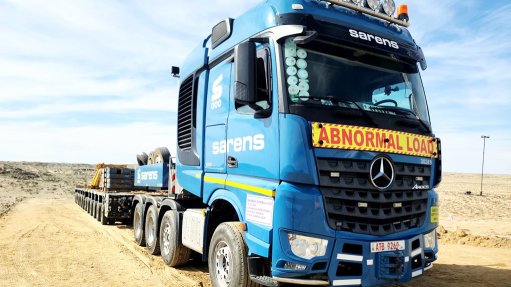An exemplary leader
Mahamadou Issoufou is not a household name on these shores. But he is definitely a remarkable fellow, if the bestowal on him of the 2020 Ibrahim Prize for African Leadership is anything to go by.
Launched in 2007 and sponsored by Sudanese-born telecoms billionaire Mo Ibrahim, the accolade is awarded to a recently retired executive head of State or government who has distinguished himself or herself in developing his or her country, lifting his or her fellow countrymen and women out of poverty and paving the way for sustainable and equitable prosperity.
The prize committee, which comprises eminent figures, is really fastidious, having selected only six recipients of the $5-million accolade in the past 14 years. Besides honorary awardee Nelson Mandela in 2007, these were Mozambique’s Joaquim Chissano (2007), Botswana’s Festus Mogae (2008), Carbo Verde’s Pedro Pires (2011), Namibia’s Hifikepunye Pohamba (2014) and Liberia’s Ellen Johnson Sirleaf (2017).
The Pipe Smoking One (aka Thabo Mbeki) was deemed to be unworthy of the award, despite South Africa’s having notched up impressive economic growth rates on his watch. His being passed up could have something to do with his outlandish views on HIV/Aids, which, his critics argue, led to the preventable deaths of up to 365 000 South Africans who were deprived of antiretroviral treatment.
There is also the little matter of Zimbabwe. According to his detractors, when he was called upon to mediate in the neighbouring country – after long-ruling dictator Robert Mugabe and his party had lost an election – he was so biased that he allowed Mugabe to stay on in a government of national unity in which he was the senior partner. Apart from the duration of the unity government, which allowed the ruling party – Zanu-PF – to regroup and restrategise, it has only been downhill for Zimbabwe.
Of course, there was not a snowball’s chance in hell that The Pipe Smoking One’s successor, Jacob Zuma, would be considered for the award, given his shenanigans with the Gupta brothers.
But Issoufou proved to be a different kettle of fish. His leadership of Niger – a landlocked West African country of about 23-million people that is bordered by Libya to the north-east, Chad to the east, Nigeria to the south, Burkina Faso to the south-west, Mali to the west and Algeria to the north-west – was nothing but exemplary.
When he was first elected President in 2011, following many years of military rule, he inherited one of the poorest countries in the world, with 48% of the population living below the poverty line. When his second five-year term came to an end earlier this year, he stepped down, demonstrating his respect for the country’s Constitution.
Data from the 2020 Ibrahim Index of African Governance (IIAG) underlines Issoufou’s achievements. During his ten years in power, Niger made significant progress in multiple areas, including in all four subcategories of the IIAG’s human development dimension, namely health, education, social protection and the environment. At the end of the decade, Niger ranked 28 out of 54 countries on the IIAG and is among the ten most improved African countries in strengthening socioeconomic opportunities for women.
Prize committee chairperson Mogae, himself a past laureate, said of Issoufou when he announced the award on March 8: “In the face of the most severe political and economic issues, including violent extremism and increasing desertification, President Mahamadou Issoufou has led his people on a path of progress. Today, the number of Nigeriens living below the poverty line has fallen to 40% from 48% a decade ago. While challenges remain, Issoufou has kept his promise to the Nigerien people and paved the way for a better future.”
Issoufou has made the continent proud, and one wishes the current crop of leaders would do their damndest to emulate him.
Article Enquiry
Email Article
Save Article
Feedback
To advertise email advertising@creamermedia.co.za or click here
Announcements
What's On
Subscribe to improve your user experience...
Option 1 (equivalent of R125 a month):
Receive a weekly copy of Creamer Media's Engineering News & Mining Weekly magazine
(print copy for those in South Africa and e-magazine for those outside of South Africa)
Receive daily email newsletters
Access to full search results
Access archive of magazine back copies
Access to Projects in Progress
Access to ONE Research Report of your choice in PDF format
Option 2 (equivalent of R375 a month):
All benefits from Option 1
PLUS
Access to Creamer Media's Research Channel Africa for ALL Research Reports, in PDF format, on various industrial and mining sectors
including Electricity; Water; Energy Transition; Hydrogen; Roads, Rail and Ports; Coal; Gold; Platinum; Battery Metals; etc.
Already a subscriber?
Forgotten your password?
Receive weekly copy of Creamer Media's Engineering News & Mining Weekly magazine (print copy for those in South Africa and e-magazine for those outside of South Africa)
➕
Recieve daily email newsletters
➕
Access to full search results
➕
Access archive of magazine back copies
➕
Access to Projects in Progress
➕
Access to ONE Research Report of your choice in PDF format
RESEARCH CHANNEL AFRICA
R4500 (equivalent of R375 a month)
SUBSCRIBEAll benefits from Option 1
➕
Access to Creamer Media's Research Channel Africa for ALL Research Reports on various industrial and mining sectors, in PDF format, including on:
Electricity
➕
Water
➕
Energy Transition
➕
Hydrogen
➕
Roads, Rail and Ports
➕
Coal
➕
Gold
➕
Platinum
➕
Battery Metals
➕
etc.
Receive all benefits from Option 1 or Option 2 delivered to numerous people at your company
➕
Multiple User names and Passwords for simultaneous log-ins
➕
Intranet integration access to all in your organisation

















